Roasting Equipment Essentials
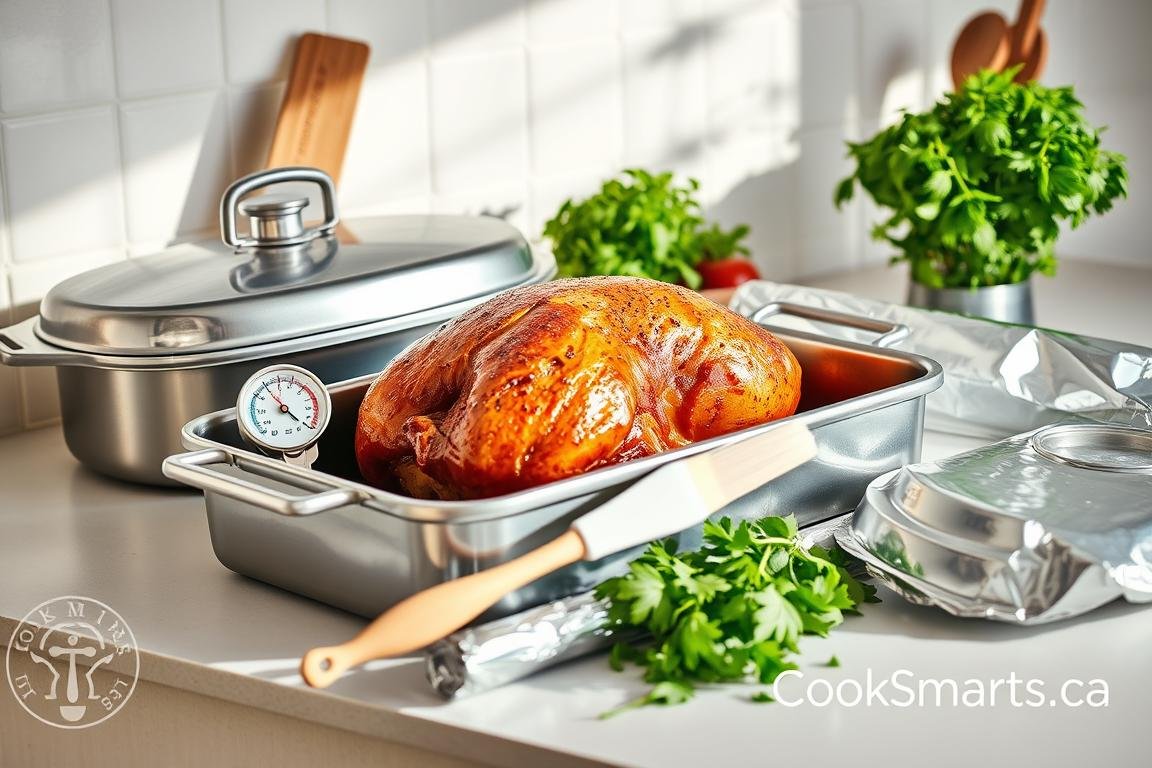
Can the right equipment make your morning coffee magical? Every coffee lover knows great coffee starts with expert roasting. But to turn green beans perfect brown, you need more than quality beans. You need Roasting Equipment Essentials. Whether you’re an experienced coffee lover or new to coffee making, you can’t overlook the importance of Coffee Roasters, Roasting Drums, Chaff Collectors, and Afterburners.
Cooling Trays, Roast Probes, and Roast Logging Software also play a big part in making your roast just right. And don’t forget about Green Bean Storage and Sample Roasters. They’re key to caring for your beans before roasting. Join us in exploring how these essentials improve the process and taste of your coffee.
Key Takeaways
- Learn why every piece of roasting equipment, from Roasting Drums to Roast Probes, is important.
- Discover why Coffee Roasters and Afterburners are crucial for the perfect flavor.
- See how Roast Logging Software helps you consistently achieve great roast profiles.
- Understand the role of Cooling Trays and Green Bean Storage in maintaining quality before and after roasting.
- Explore the value of Sample Roasters for roasters aiming to perfect their craft.
Introduction to Roasting Equipment
Starting to master coffee roasting means learning about the right equipment. Good coffee roasters help in making your coffee taste its best. They are key to getting the flavor and quality you want.
The Importance of Quality Tools
For coffee lovers, high-quality roasting tools are a must. Using top-notch roasters lets you adjust the roast precisely. This affects the taste and smell of your coffee. Good equipment also brings consistent results, important for coffee pros and home enthusiasts.
Benefits of Using Professional Gear
Advanced roasting tools make roasting easier and improve your skills. For businesses, it helps keep coffee quality consistent. This builds customer trust and loyalty. These tools offer better control over heat, air flow, and temperature, crucial for great coffee.
There’s a wide selection of tools, from drum roasters to software like Cropster. Cropster helps log detailed roasting info. This tech supports practical roasting and helps apply complex theories, like DTR, for better roasts.
Right tools matter whether you’re a beginner or want to perfect your roasting. With the evolving roasting scene, having current tools helps. There’s equipment for every roasting style, helping improve your coffee journey.
Types of Roasting Equipment
Looking into the variety of coffee roasting tools shows many methods and machines. These include Roasting Drums, Afterburners, and Chaff Collectors. Each plays a key role in making sure the coffee roasting is done just right.
Ovens vs. Roasters
Knowing how ovens and roasters differ is important for coffee lovers. Ovens are versatile but lack specific features for coffee. Whereas Roasting Drums in roasters deliver precise heat. This heat control is essential for even cooking of coffee beans and improving their taste.
The Role of Different Materials
The materials used in roasting gear are critical to its functioning, especially regarding heat. Roasters with Afterburners control temperature well and limit smoke and smells. Chaff Collectors are key for a clean and safe roasting area. They take care of the leftover bits from the beans, boosting operation efficiency.
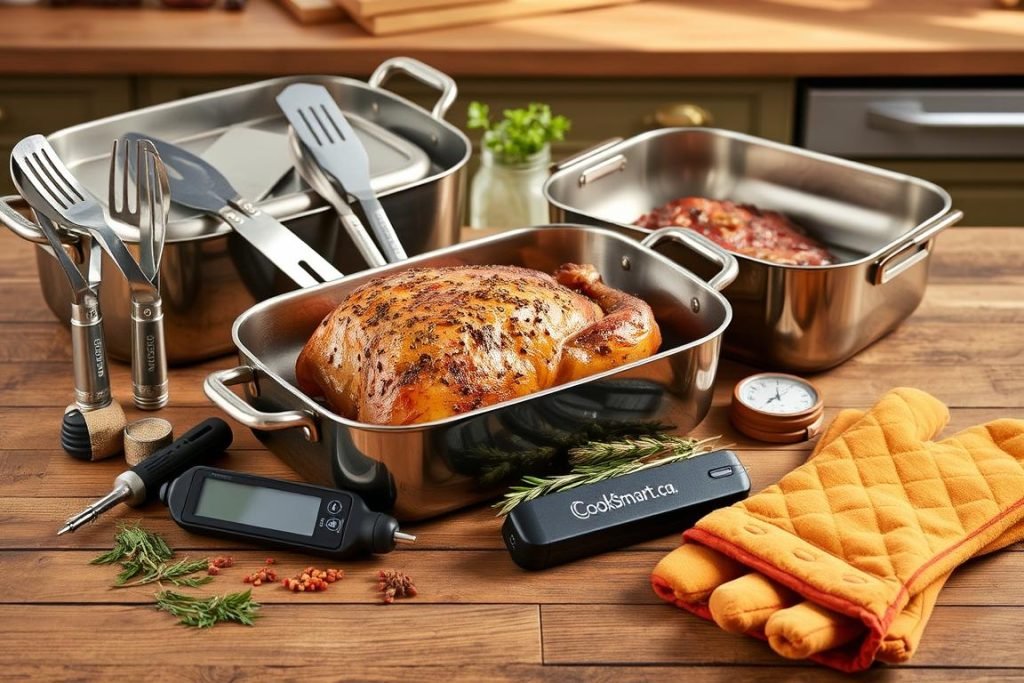
Choosing the correct gear greatly affects coffee roasting nuances. Having the right Roasting Drums, powerful Afterburners, and effective Chaff Collectors lets you handle the roasting process well. This leads to a better and more consistent coffee quality.
Must-Have Roasting Pans
When shopping for Roasting Equipment Essentials, picking the right roasting pan is key. These pans are a must for those who love to roast meats and vegetables. They help whether you’re making a big meal for many people or a small one for a few.
Choosing the Right Size
The size of your pan is very important. It needs to fit the food you’re cooking so everything cooks well. Big pans are great for large meats like whole turkeys. Smaller pans are best for veggies and smaller meat portions.
If using Sample Roasters, a pan that’s the right size lets you try different roasts. This can be for just a few treats or a big meal.
Features to Look For
Certain features make a roasting pan great. Look for pans that last long and spread heat well. Stainless steel pans with an aluminum core are often best. They are strong and heat up evenly, which is great for different roasts.
Good pans also work on the stove, not just in the oven. This is helpful for making gravy or sauce after roasting. Handles matter a lot too. Wide, strong handles help you carry the pan safely, even when it’s full. And, racks that hold food in place for even air flow help cook everything evenly.
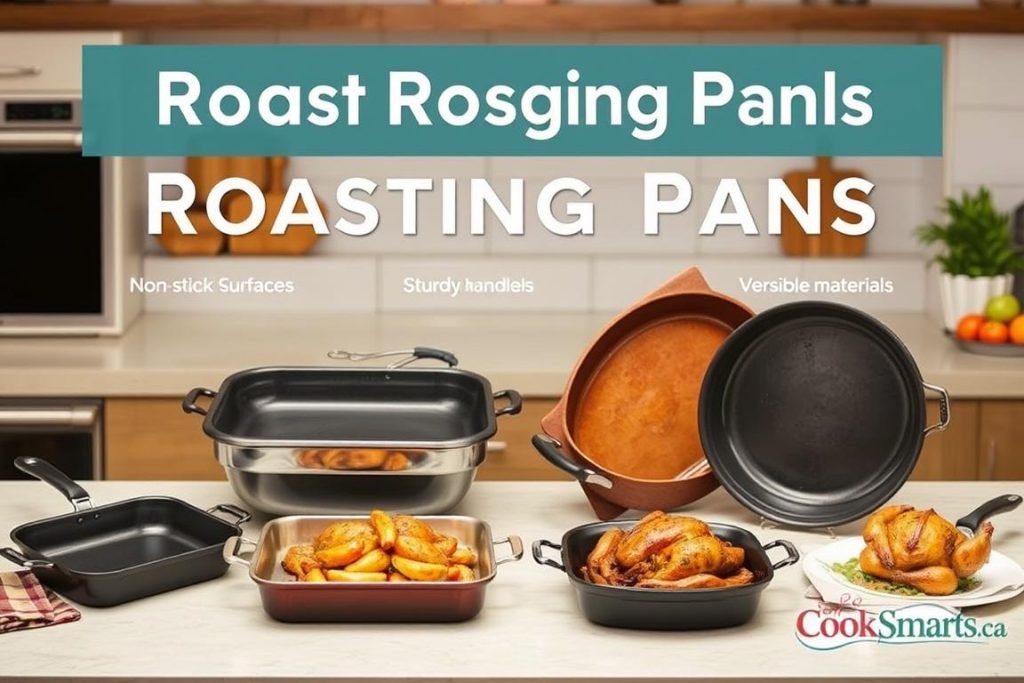
| Feature | Description | Benefits |
|---|---|---|
| Material | Stainless Steel with Aluminum Core | Durability, excellent heat conduction, non-reactive |
| Handles | Wide, looped, secure grip | Safe and easy handling |
| Size | Minimum 16 x 12 inches | Accommodates large cuts, optimal for Sample Roasters |
| Usage | Compatible with oven and stovetop | Versatility for roasting and making sauces |
| Special Rack | Angled rack for securing poultry | Enhances air circulation, even roasting |
Getting the right roasting pan is key for those who love to cook. It improves the taste and quality of your food. It also becomes a helpful tool in your Roasting Equipment Essentials. A good roasting pan is a partner in the kitchen, whether you’re trying new recipes or perfecting old ones.
Essentials for an Even Roast
To achieve a perfect roast, it’s crucial to manage your Coffee Roasters, Cooling Trays, and Roasting Drums. These are not just add-ons but key to getting a uniform and delightful roast.
The Importance of Heat Distribution
Even roasting relies heavily on how heat spreads in Coffee Roasters. The design and build of Roasting Drums are vital. They help distribute and keep heat, ensuring all beans are evenly roasted. This uniform heating is important for the beans to develop rich flavors.
Using Convection Settings
Convection settings help get an even roast in Coffee Roasters. They make sure hot air moves well, preventing uneven roasting. This improves the roasting and saves energy by cutting down roasting time.
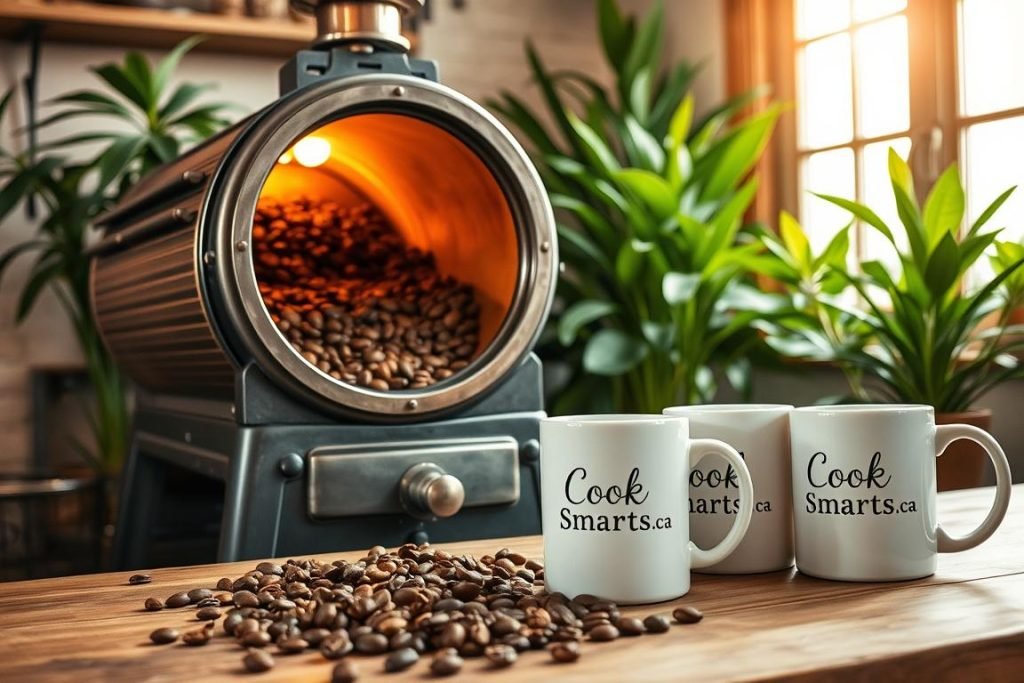
Right after roasting, Cooling Trays quickly cool the beans. This stops further cooking. It’s important for keeping the beans’ flavors. A good tray improves coffee quality by quickly stabilizing bean characteristics.
| Coffee Roaster Equipment | Description | Size or Capacity |
|---|---|---|
| Coffee Roasters | Central device for bean heating and roasting | 3kg – 15kg |
| Cooling Trays | Used post-roast to quickly cool down beans | Varies, match to roaster output |
| Roasting Drums | Facilitates uniform heat application | Matches roaster capacity |
| Convection Settings | Ensures efficient heat circulation | Standard in modern roasters |
To sum up, mastering Coffee Roasters, Cooling Trays, and Roasting Drums boosts your roasting’s quality and efficiency. Every coffee lover will appreciate the taste and aroma. Getting the right gear and knowing how to use it is key for top-notch coffee roasting.
Thermometers: The Roasting Game Changer
Perfecting the art of roasting is more than timing and temp. It needs precision from the best tools. Roast Probes and Roast Logging Software are now essential. They are vital for chefs at all levels.
Digital vs. Analog Thermometers
Digital thermometers are quick and accurate. That’s why they are popular in busy kitchens. Analog thermometers are slower and less precise. Digital tools, especially Roast Probes, give real-time temps from the meat’s core. This means every roast is just right.
Best Practices for Temperature Checking
For tasty and safe roasts, following temperature guidelines is key. Roast Logging Software is very helpful. It logs temps so you can repeat great roasts. This is true whether you’re roasting coffee or meat. Good Roast Probes and software make your cooking consistent.
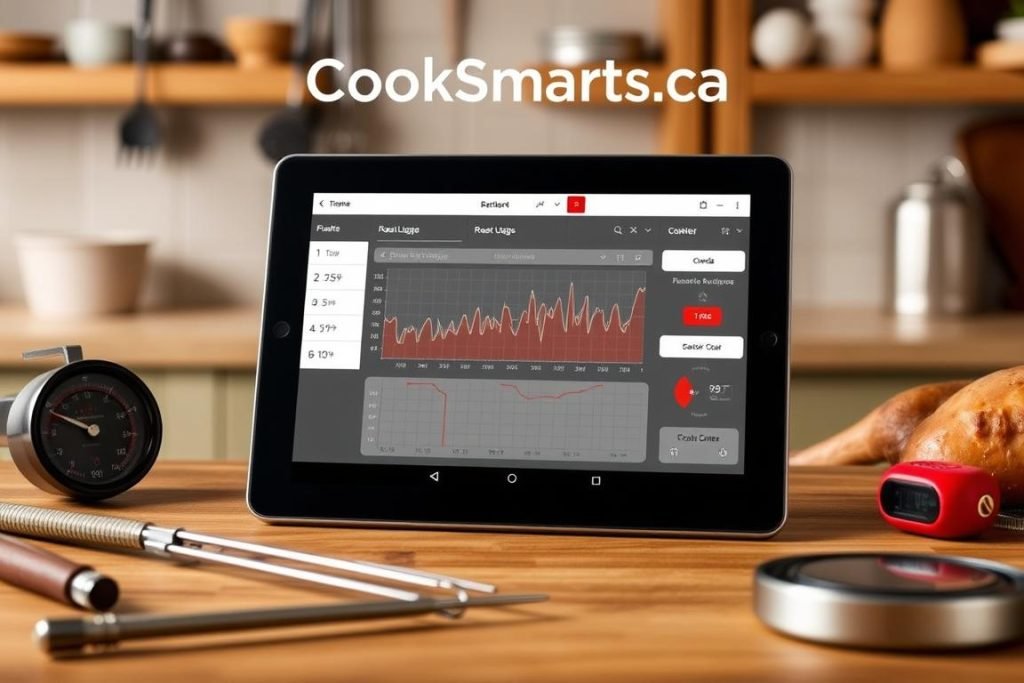
| Thermometer Model | Type | Temperature Range | Response Time |
|---|---|---|---|
| ThermoWorks Thermapen ONE | Digital Instant-read | -58.0 to 572.0°F | 2 to 4 seconds |
| ThermoWorks ChefAlarm | Digital Probe | -58.0 to 572.0°F | 5 to 40 seconds |
| Polder Digital Leave-In Probe | Digital Probe | 32 to 392°F | 5 to 40 seconds |
| ThermoWorks BlueDOT | Wireless Alarm | -58.0 to 572.0°F | 5 to 10 seconds |
Picking the right thermometer is crucial. It makes your food both safe and delicious. With Roast Probes and Roast Logging Software, you master temperature control. This unlocks the greatness of your dishes.
Utensils for Managing Roasts
Roasting is an art that depends a lot on the utensils you use. Tools like spatulas and tongs play key roles in making your cooking better and safer. We’ll look at important tools like Chaff Collectors and Afterburners that help in handling and preparing roasts.
Choosing the Right Spatulas and Tongs
Spatulas and tongs are crucial in the kitchen for safely managing hot food. They help in flipping and handling food without damaging it. Choosing items that resist high heat and have ergonomic designs can also make cooking more comfortable and your tools last longer, especially with equipment like Afterburners.
Different products come at different prices depending on their quality and brand. A simple fish spatula for easy flipping can cost about $14 on Amazon. On the other hand, high-quality tongs for managing big meat pieces securely might be around $16 on Amazon.
Essential Slicing Tools
Knives and cutters are very important for preparing meat and taking care of tools like Chaff Collectors. Keeping your roasting tools clean, including slicing green beans properly, helps keep them working well.
If you want precise cuts, a high-end Japanese-style chef’s knife could cost $197 on Amazon. For a more budget-friendly choice, a Western-style chef’s knife could be $19. Each knife type has its special use, from fine cutting with Japanese knives to handling big pieces with Western knives.
Good knives also help clean your Chaff Collectors effectively. Picking the right slicing tools makes cooking and maintaining equipment easier.
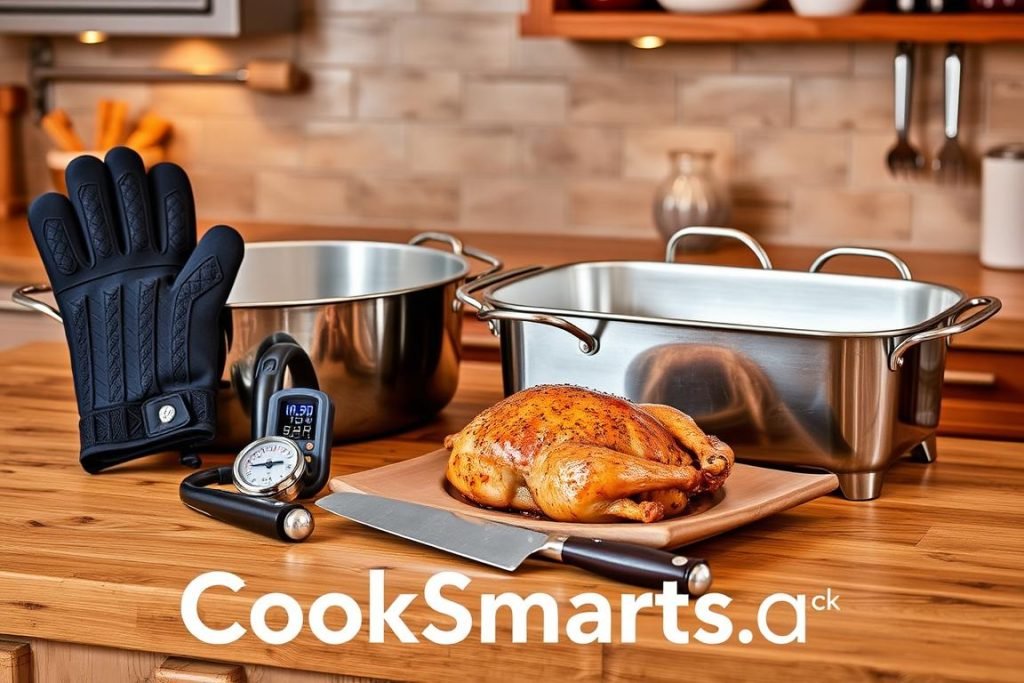
Roasting Accessories to Consider
Exploring coffee roasting? Certain accessories make it better and boost your coffee’s quality. Tools like basting brushes and marinade injectors shape flavor and moisture. This is vital for delicate beans or robust blends. Simple items like aluminum foil are key to keep your green beans fresh after roasting.
Basting Brushes and Marinade Injectors
Basting brushes spread natural oils and flavors evenly in coffee roasting. This matters a lot, especially in Sample Roasters, for precision. Marinade injectors put flavors deeper, great for playing with new gourmet beans.
Aluminum Foil: A Versatile Tool
For home roasters, aluminum foil is a must. Wrapping beans in foil post-roast locks in aroma and freshness. Foil also helps in storing green beans, controlling air and moisture exposure.
Your coffee roasting setup needs items for both technical and storage needs. Let’s see how different accessories are key in the roasting process:
| Accessory | Use in Roasting Process | Benefits |
|---|---|---|
| Basting Brushes | Even distribution of oils and flavors | Enhances flavor complexity in roasted beans |
| Marinade Injectors | Deep infusion of gourmet flavorings | Precise flavor control, ideal for specialty roasts |
| Aluminum Foil | Cooling and storage of roasted beans | Maintains freshness and aroma by controlling oxidation |
| Roasting Drums | Central to the roast process in larger roasters | Provides consistent heat distribution for even roasting |
Improving your roasting methods? Get good roasting drums and sample roasters, and manage your green beans well. These steps improve your home-roasted coffee’s taste and quality. Use these tools to boost your roasting skills and enjoy a better cup every time.
Safety Features in Roasting Equipment
It’s crucial to have Roasting Equipment Essentials with top-notch safety features. No matter the size of your operation, knowing and using these safety steps can lower the dangers. This is especially true when working with Coffee Roasters.
Heat-Resistant Handles
Key safety additions in Roasting Equipment Essentials include heat-resistant handles. They keep you safe from burns when handling heated gear. Anytime you’re making adjustments or moving tools, these handles guard against serious injuries.
Oven Mitts and Aprons
Adding to the protection of heat-resistant handles, wearing oven mitts and aprons offers more safety. Aprons shield your body against heat spills and splashes that often happen. Oven mitts are vital for touching anything hot from a roaster or oven. They are more than just protective wear; they’re essential for keeping safe while using Coffee Roasters.
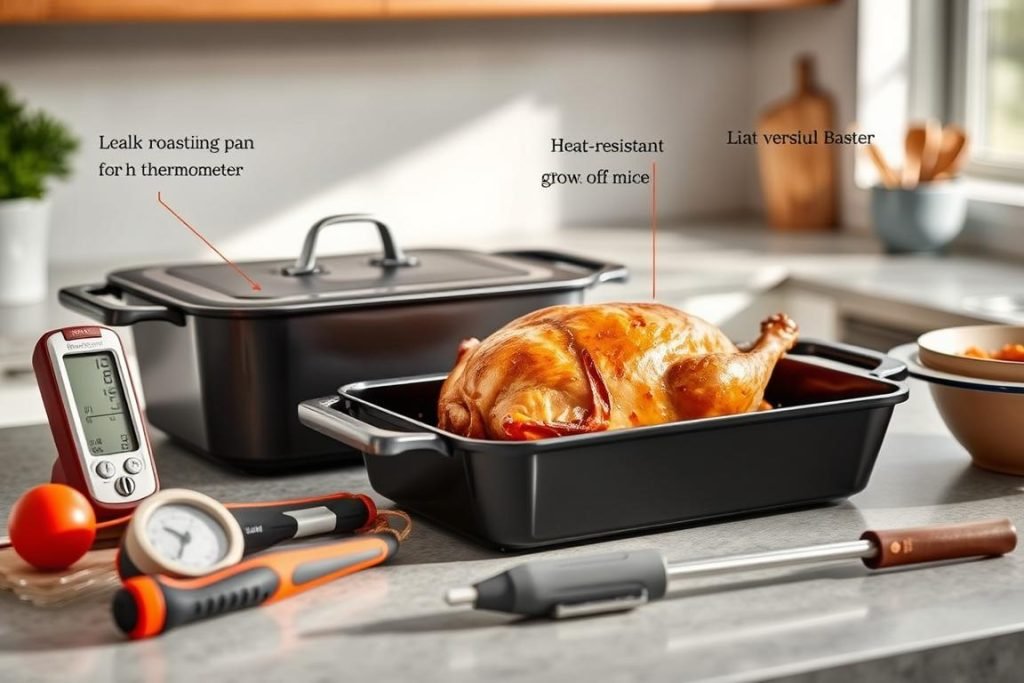
| Safety Concern | Safety Feature |
|---|---|
| High Temperature Risk | Heat-Resistant Handles, Oven Mitts |
| Fire Safety | Fire Extinguishers (Foam, CO2), Water Sprayers |
| Workplace Hazards | Safety Gear (Gloves, Dust Masks), Gas-off Switches |
| Equipment Safety | Regular Maintenance, Safety Shutdown Features |
When using Coffee Roasters and similar equipment, paying close attention to safety is key. By adding these features to your space, you’re not just keeping everyone safe. You’re also making operations smoother and more productive. Remember, a safe environment leads to better work.
Cleaning and Maintenance of Roasting Gear
Keeping your roasting gear clean can make it last longer and keep your coffee quality high. We will cover the best ways to clean and store your gear. This keeps everything working well.
Best Cleaning Practices for Longevity
It’s important to regularly clean your Roasting Equipment Essentials like Cooling Trays and Chaff Collectors. This prevents fires and keeps the machine running smoothly. Pieces like the impeller fan, ducting, and pipes need careful cleaning to remove coffee dust and oils. Urnex Roaster Sprayz can help clean without harming your machine.
Storing Your Equipment Properly
Store your roasting tools in a dry, tidy place to keep them in good condition. This stops damage from moisture and makes the tools easy to get to. Checking your equipment often and following the right handling steps can prevent damage.
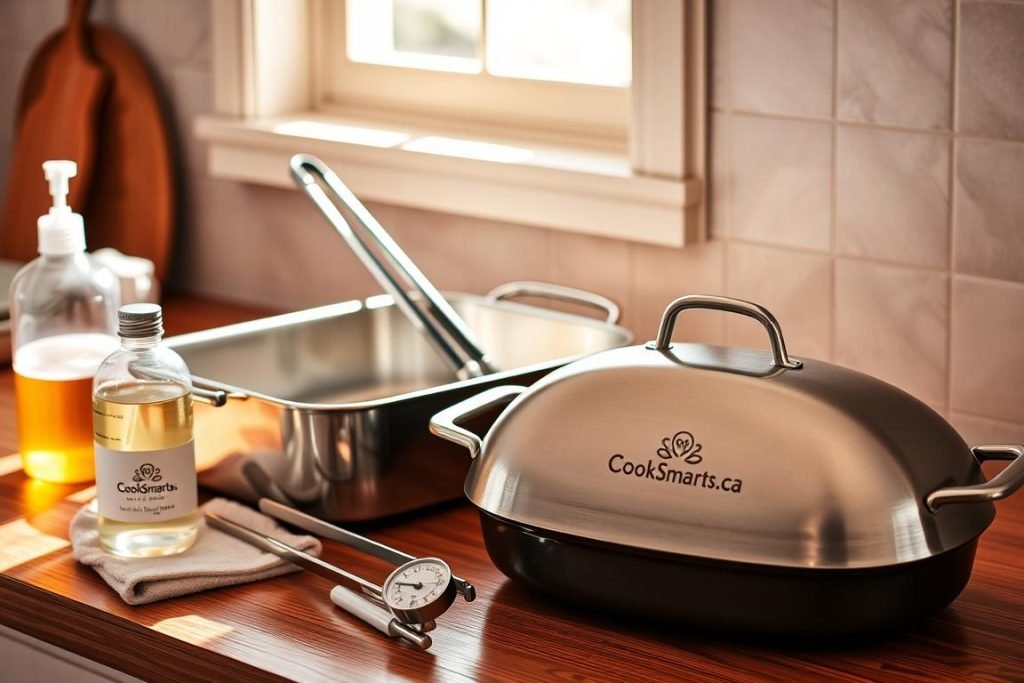
| Maintenance Schedule | Tasks | Frequency |
|---|---|---|
| Daily | Clear chaff collector, wipe down Cooling Trays, check for any residues on visible parts. | Every use |
| Weekly | Inspect drum, check fan and heating elements, ensure airflow is unobstructed. | Once a week |
| Monthly | Deep clean roasting chamber, lubricate moving parts, clear and inspect sensors. | Once a month |
| Quarterly | Professional inspection, system calibration, exhaust system cleaning, tubing dismantling. | Every three months |
Paying close attention to cleaning and storing your roasting gear helps stop problems. These steps can prevent residue buildup, roaster fires, and poor machine performance. Following these practices ensures your coffee quality stays top-notch.
Specialty Roasting Tools
Exploring beyond basic tools by using items like Dutch ovens and cast iron helps improve your coffee’s taste and quality. These items are key when used with Coffee Roasters, Sample Roasters, and Roasting Drums. They suit different roasting styles and preferences well.
Dutch Ovens: A Versatile Option
Dutch ovens blend old and new in the roasting process perfectly. They’re strong and keep heat in very well. Dutch ovens work great with Coffee Roasters for trying out new roast profiles. They’re ideal for a slow roast, bringing out the best in coffee beans.
Use of Cast Iron in Roasting
Cast iron brings a classic feel to roasting, like using Sample Roasters and Roasting Drums. It’s perfect for those wanting a hands-on roasting method. Cast iron helps make deep, rich flavors typical of artisanal roasts.
Here is a table comparing essential tools and tips for an advanced roasting setup:
| Equipment | Use | Benefits |
|---|---|---|
| Coffee Roasters | Primary roasting tool | Precision in roasting, ability to handle large batches efficiently |
| Sample Roasters | Testing and development of new roasts | Allows for experimentation with small batches, saving resources while refining profiles |
| Roasting Drums | Batch roasting of beans | Even roasting and flavor development |
| Dutch Ovens | Alternative tool for roasting | Enhances flavor through slow roasting, accessible for home roasters |
| Cast Iron Tools | Traditional roasting approach | High heat retention, adds depth to the roast character |
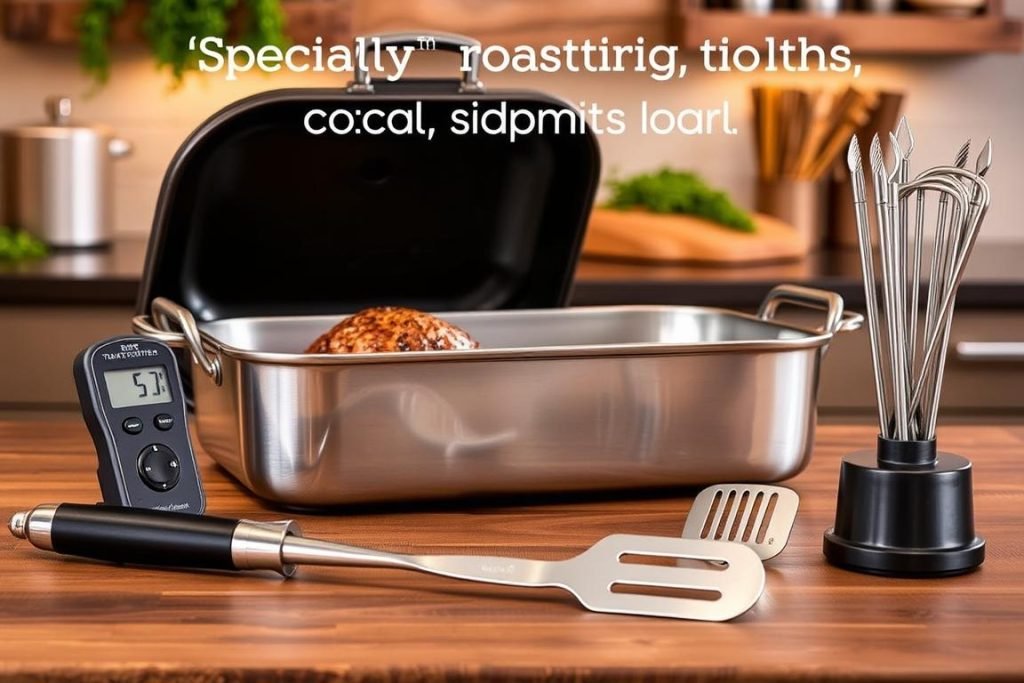
Understanding Roasting Techniques
Roasting coffee is both an art and a science. It requires precision and a deep insight into coffee beans. The right equipment and methods are key, blending old knowledge with new tech.
Methods of Dry Roasting
Dry roasting brings out pure flavor, free from oils or additives. It shows how efficient afterburners reduce smoke and odor. This method is also good for the planet, refining taste while being eco-friendly.
The importance of Cooling Trays is huge. Right after roasting, they stop the beans from cooking more. This keeps the flavors fresh. Roasters using these trays ensure their coffee smells and tastes great.
The Benefits of Spatchcocking
Spatchcocking is key in coffee roasting for even heat. It shortens roasting time and makes heat spread evenly. With Green Bean Storage, it’s important to keep beans in good shape before roasting. The right storage keeps them perfect for roasting.
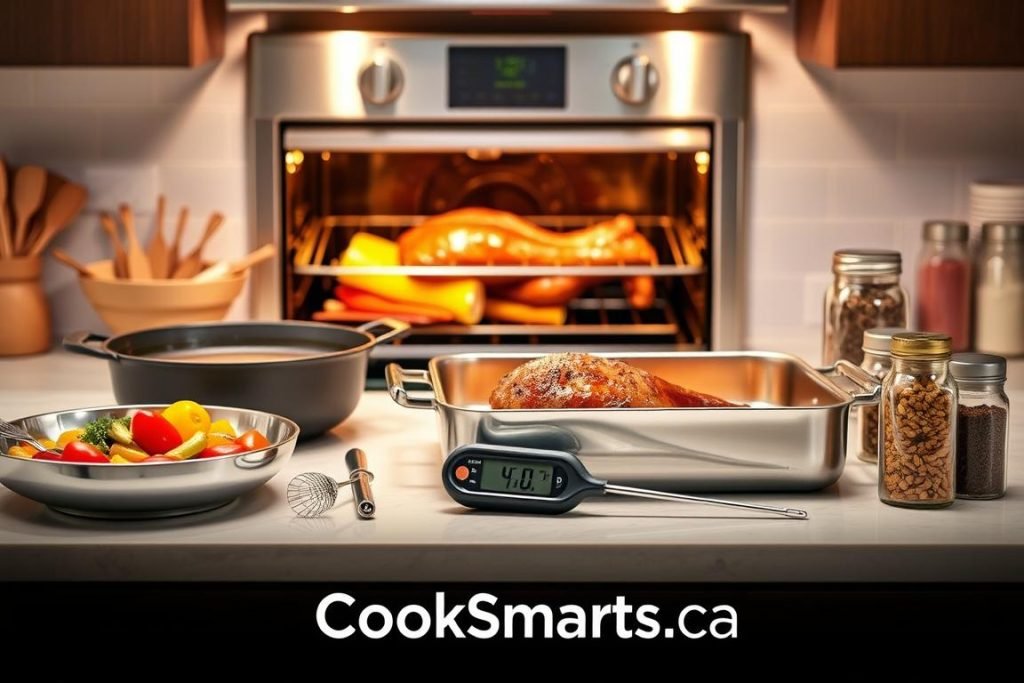
The Bullet R1 roaster shows the careful steps of roasting. Preheating it for about 45 minutes is crucial. This gets the best flavor and roast profile.
| Batch Size (grams) | Preheat Time (minutes) | Preheat Temperature (°C) |
|---|---|---|
| 350 – 600 | 25 – 45 | 190 – 195 |
| 600 – 1000 | 25 – 45 | 190 – 200 |
In mastering advanced coffee roasting, every step matters. From choosing beans to cooling, all affect the outcome. Dry roasting or spatchcocking aims to highlight the bean’s natural qualities. The result is a coffee that stands out in quality and taste.
Conclusion: Investing in Quality Roasting Tools
Starting your coffee roasting journey? Remember, high-quality tools are key. They make a big difference whether you’re roasting at home or in a big setup. Using top-notch Roasting Equipment raises your coffee quality. It also makes your workplace safer and your results more consistent.
Choosing the right equipment and keeping your space tidy are important steps. They help you succeed in making excellent coffee.
Making the Right Choices
The market is full of equipment choices. Therefore, choosing wisely is as crucial as finding the best coffee beans. High-quality tools like Roast Probes and precise scales improve your roasting. They make every batch better.
Choosing the right coffee roaster is essential too. Drum, Fluid Bed, and Centrifugal Roasters each have their benefits. This choice affects your coffee’s taste and your budget.
Elevating Your Cooking Experience
Roasting coffee is a beautiful blend of science and art. Managing heat and time is critical. It brings out the best in each bean. You’ll need good Roast Probes and software for this.
These tools help you control the roasting process. They allow you to make adjustments for consistently great coffee. Thus, you enhance the coffee and the joy of roasting it.